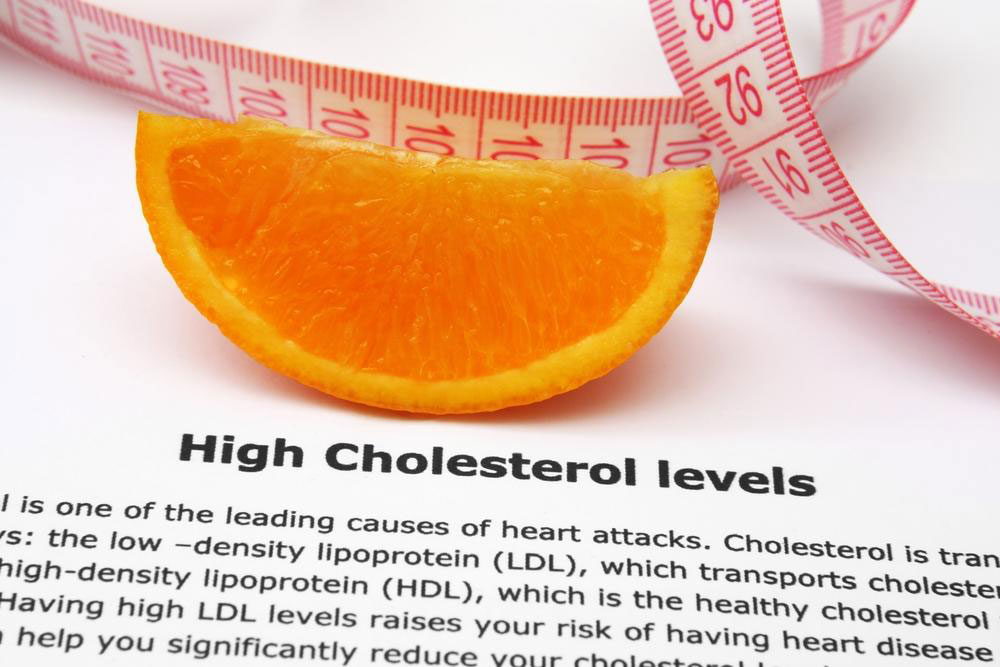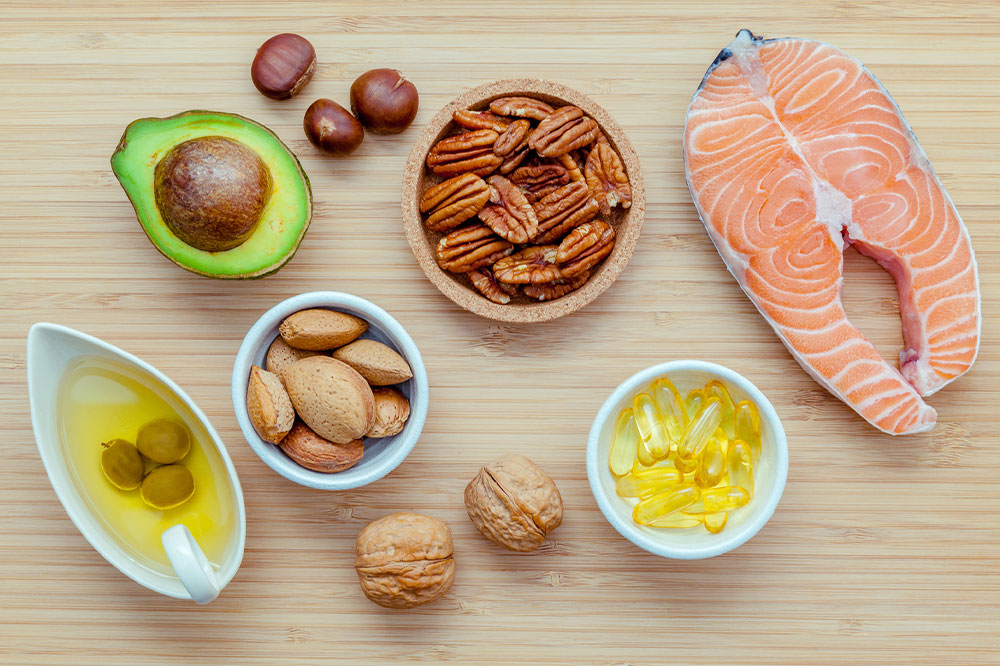Natural and Effective Approaches to Lower Cholesterol and Promote Heart Health
This comprehensive guide explores natural strategies to effectively reduce cholesterol levels and enhance heart health. It covers diet modifications, exercise routines, stress management, and how to avoid unhealthy fats, offering practical tips to maintain optimal lipid balance and prevent cardiovascular disease. Emphasizing plant-based foods, regular physical activity, omega-3 intake, and reducing trans fats and added sugars, this article provides valuable insights for anyone seeking a healthier cardiovascular profile through natural methods.

Natural and Effective Approaches to Lower Cholesterol and Promote Heart Health
Cholesterol is an essential waxy substance produced by the liver and vital for numerous bodily functions, including hormone production and cell membrane integrity. However, maintaining a healthy balance between the types of cholesterol—particularly LDL (low-density lipoprotein) and HDL (high-density lipoprotein)—is crucial for cardiovascular health. Elevated LDL levels are associated with plaque buildup in arteries, increasing the risk of heart attacks and strokes. Conversely, HDL is known for its role in removing excess cholesterol from the bloodstream. Adopting natural lifestyle and dietary strategies can effectively help regulate these cholesterol levels, reducing the risk of cardiovascular disease.
Understanding the importance of lifestyle modifications, along with dietary changes, can empower individuals to improve their heart health naturally. This comprehensive guide explores proven methods such as diet adjustments, exercise routines, and stress management techniques to support healthy cholesterol levels and overall cardiovascular wellness.
Emphasize a Plant-Based Diet for Heart Health
A cornerstone of natural cholesterol management is adopting a diet centered around plant-based foods. Fruits, vegetables, nuts, seeds, legumes, and whole grains are rich in nutrients, antioxidants, and soluble fiber, all of which contribute to lowering bad cholesterol (LDL) and promoting good cholesterol (HDL). Incorporate a variety of colorful fruits and vegetables such as berries, oranges, spinach, carrots, and peppers. These foods are packed with antioxidants that combat oxidative stress—an underlying factor in atherosclerosis.
Nuts and seeds, including almonds, walnuts, flaxseeds, and chia seeds, are excellent sources of healthy fats and fibers that help improve lipid profiles. Whole grains like quinoa, brown rice, oats, and barley not only provide complex carbohydrates but also contain soluble fiber, which binds to cholesterol in the digestive system, aiding its excretion. Additionally, including legumes such as beans, lentils, chickpeas, and peas can deliver plant-based proteins that support heart health while helping to lower LDL cholesterol.
Incorporating healthy plant fats, particularly from avocados and olive oil, can further contribute to cardiovascular benefits. Replacing saturated fats with these healthier fats diminishes LDL cholesterol levels and improves overall lipid balance.
Engage in Regular Physical Activity
Consistent exercise is a fundamental component of natural cholesterol management. Engaging in physical activity helps raise HDL cholesterol while lowering LDL and triglyceride levels. Aerobic exercises such as brisk walking, jogging, cycling, swimming, or dancing stimulate heart and lung function, which has a positive effect on lipid metabolism. Resistance training, including bodyweight exercises like push-ups, squats, and lunges, enhances muscle mass, improves metabolic rate, and supports cardiovascular health.
Health authorities recommend a minimum of 150 minutes of moderate-intensity aerobic exercise each week, which can be broken down into manageable sessions—for instance, 30 minutes five days a week. For optimal benefits, including variety and intensity, you may consider increasing the duration or incorporating vigorous activities as tolerated. Staying active not only aids in cholesterol regulation but also improves blood pressure, weight management, and overall cardiovascular endurance.
Prioritize Omega-3 Fatty Acids
Omega-3 fatty acids are polyunsaturated fats renowned for their heart-protective effects. Fatty fish like salmon, mackerel, sardines, and tuna are among the best sources of omega-3s, providing EPA and DHA—two essential fatty acids that significantly lower triglycerides and support arterial health. Regular consumption of these fish, at least twice a week, can lead to measurable improvements in lipid profiles.
For individuals who prefer plant-based options or have seafood allergies, flaxseeds, chia seeds, walnuts, and hemp seeds are excellent plant sources of omega-3s. Flaxseeds and chia seeds are rich in alpha-linolenic acid (ALA), which the body can partially convert into EPA and DHA. Incorporating these foods into your daily diet—such as adding ground flaxseed to smoothies or oatmeal—can contribute to reducing cardiovascular risks associated with high triglycerides and inflammation.
Besides supporting heart health, omega-3s have anti-inflammatory properties and may reduce the risk of stroke and certain cancers, making them a vital addition to a heart-healthy lifestyle.
Avoid Unhealthy Trans Fats
Trans fats are artificially created fats produced through hydrogenation processes used to increase shelf life in processed foods. These unhealthy fats are notorious for raising LDL cholesterol and lowering HDL cholesterol, thereby elevating cardiovascular risk. Trans fats are commonly found in margarine, baked goods, snack foods, fried items, and processed snacks.
To reduce trans fat intake, always check nutrition labels for the term “partially hydrogenated oils” and opt for foods free of trans fats. Replacing trans fats with healthier fats, such as those from olive oil, avocado, and nuts, can improve lipid profiles and promote heart health.
Public health initiatives aim to eliminate trans fats from the food supply, but consumers should remain vigilant about reading food labels and making informed choices to support their heart health naturally.
Increase Soluble Fiber Intake
Soluble fiber plays a vital role in managing cholesterol by binding to lipids in the digestive tract and promoting their elimination. Foods high in soluble fiber include oats, barley, legumes, fruits like apples, pears, and citrus, and vegetables such as carrots and Brussels sprouts. Gradually introduce these foods into your diet to avoid digestive discomfort and maximize benefits.
Consuming a diet rich in soluble fiber can lead to significant reductions in LDL cholesterol levels over time. It also helps stabilize blood sugar levels, enhancing overall metabolic health. For best results, aim to include a source of soluble fiber in each meal, such as adding oats to breakfast or snacking on an apple or pear.
Choose Lean and Healthy Fats
Saturated fats found in fatty cuts of meat, full-fat dairy, and tropical oils like coconut oil can raise LDL cholesterol. To promote cardiovascular health, opt for lean meats such as skinless poultry, fish, and plant-based protein sources. When cooking, favor healthy oils like extra virgin olive oil, canola oil, and avocado oil, which contain monounsaturated fats beneficial for heart health.
Limiting intake of red meats and processed meats, while choosing seafood like shrimp, crab, and other shellfish, can help keep saturated fats in check. Using herbs and spices to flavor foods instead of butter or creamy sauces also supports healthier dietary choices.
Manage Stress for Heart Wellness
Chronic psychological stress can negatively impact cardiovascular health by increasing LDL cholesterol and triglycerides. Stress triggers hormonal responses that can lead to inflammation and arterial damage over time. Therefore, incorporating stress-reduction techniques into daily routines is essential.
Practices such as meditation, yoga, deep breathing exercises, and mindfulness meditation can effectively lower stress levels. Regular physical activity also releases endorphins that improve mood, further aiding stress management. Ensuring adequate sleep, maintaining social connections, and engaging in hobbies or leisure activities contribute to overall mental well-being and heart health.
Cut Back on Added Sugars
High intake of added sugars—found in sodas, candies, baked goods, and sweetened beverages—raises triglycerides and contributes to insulin resistance, which can indirectly increase LDL cholesterol. Excess sugar intake also leads to weight gain, metabolic syndrome, and inflammation, all of which are risk factors for cardiovascular disease.
To reduce added sugar consumption, opt for natural sweeteners like honey or use fruit purees to sweeten foods and drinks. Reading nutrition labels and choosing products with lower sugar content can significantly improve heart health. Replacing sugary snacks with nuts, seeds, or fruits supports better lipid profiles and overall wellness.
Adopting these dietary habits, alongside lifestyle modifications, can help prevent cholesterol-related health issues and promote a heart-healthy lifestyle.





